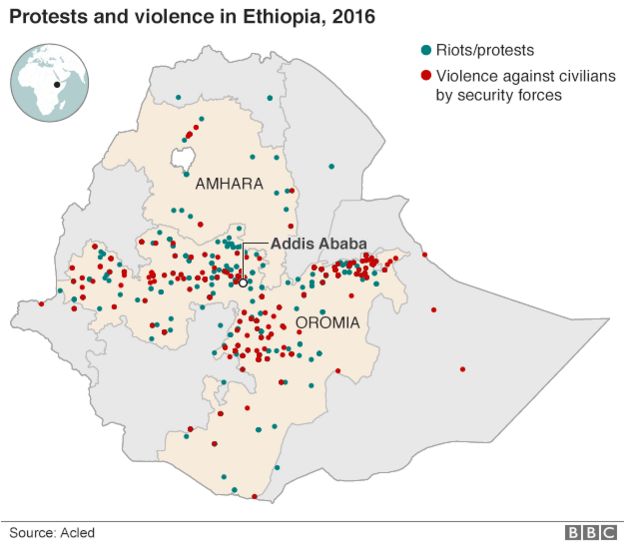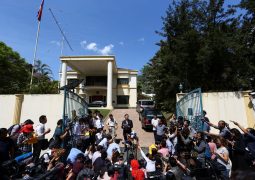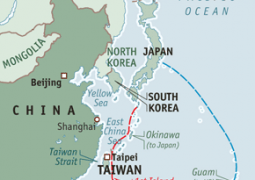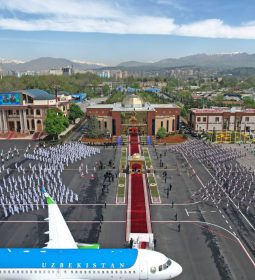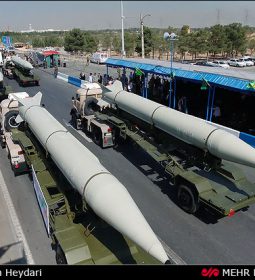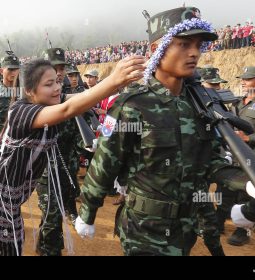A New hotspot in Black Continent: Ethiopia steps up arrests as shockwaves from coup bid continue

More than 250 people in Amhara and Addis Ababa held over suspected links to recent failed power-grab attempt.
The office of Prime Minister Abiy Ahmed said on Friday on Twitter that 212 suspects had been apprehended in connection with the June 22 coup bid in the region of Amhara, with 43 others held in the capital, Addis Ababa.
The investigations were “still ongoing with potential for more arrests”, it added.
The statement came amid reports that Christian Tadele, spokesman of the National Movement of Amhara (NAMA), an ethnocentric opposition party that has become increasingly popular with many Amhara people, was also arrested.
Speaking to Al Jazeera on Thursday, Christian had accused authorities of engaging in mass arrests of the party’s supporters and sympathisers.
“Fifty-six NAMA members have been arrested in Addis Ababa with dozens of other members and supporters arrested in other parts of Ethiopia, in an orchestrated attack not only on NAMA, but the Amhara nation as a whole,” Christian had said.
Ethiopians have been in shock since two separate attacks on Saturday in Amhara’s regional capital of Bahir Dar and Addis Ababa killed the region’s president, the national army chief of staff and several other senior officials.
The government referred to the attack in Bahir Dar as a coup attempt orchestrated by former General Asamnew Tsige. Asamnew was killed by security forces on Monday.
Jailed in 2009, Asamnew was released from prison last year as part of an amnesty granted by Abiy, who has overseen a series of reforms since coming to office in April last year.
In September 2018, officials in Amhara hired Asamnew as a regional security chief.
After assuming his duties, Asamnew, a strident Amhara nationalist, promised to protect the Amhara people, who make up around 28 percent of Ethiopia’s population.
Earlier this month, he was caught on video telling a regional religious elder to prepare for martyrdom to protect the Amhara people from persecution.
Ethiopian government officials have also accused Asamnew of training militias and police forces with the intention of attacking neighbouring regional states and challenging the power of the federal government.
More than 50 people, including children, were killed on Monday in the Metekel zone of the Benishangul-Gumuz region, Abera Bayeta, the region’s peace and security bureau chief, told Al Jazeera on Thursday, blaming the attack on suspected militia members linked to Asamnew.
Unprecedented challenge
Despite the apparent failure of the coup attempt, analysts say Abiy’s government will likely find it difficult to control ethnonational forces in the country ahead of national elections next year.
Costantinos Berhutesfa Costantinos, an Ethiopian adviser to international organisations including the African Union, said the country was at a critical juncture.
“If the 2020 elections go ahead as planned, ethnonationalist parties are likely to be dominant,” he told Al Jazeera, calling for broad nationwide discussions in a bid to harmonise the intense ethnonational sentiment across the country and maintain Ethiopia’s national character.
“With pan-Ethiopian parties seemingly having weak support, Ethiopia needs to have a debate on the broader meaning of democracy and tolerance of differing opinions – that has deeper meaning than holding elections,” Costantinos said.
Earlier this week, the Crisis Group think thank said in a statement that Ethiopia’s ruling coalition, which is mainly divided along ethnic lines, was facing an unprecedented challenge from ethnonationalist parties.
“The June 22 killings confirm the dangers in handing security portfolios to hardliners like Asamnew who are ready to pander to extreme ethnonationalists, from whichever of Ethiopia’s ethnicities,” the statement said.
For now, life appears to be returning to normal in the unrest-hit parts of Ethiopia, including in Bahir Dar.
The federal government also seems to be slowly ending its days-long internet blackout which came into force in the wake of Saturday’s coup attempt.
The government has so far refrained from commenting on the latest internet blackout.
Costantinos said the killings of senior officials and army generals warranted a robust government response to deter any power-grab attempts in the future, but warned against using the arrests as score-settling mechanisms.

“Ethiopia had lost around one million people through purges and civil wars in the 1970s to early 1990s during the period of the military regime that ruled Ethiopia from 1974 to 1991,” he said.
“The country can’t afford any repeat of past turbulence.”
- Previous Taliban kills 25 as peace talks with US get under way in Doha
- Next G20 split as US refuses to sign joint statement on climate change


